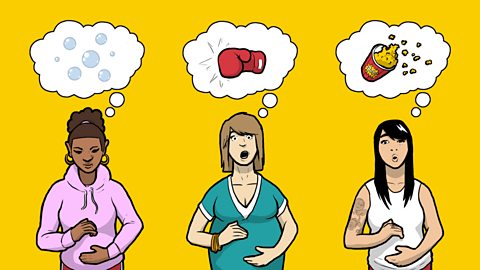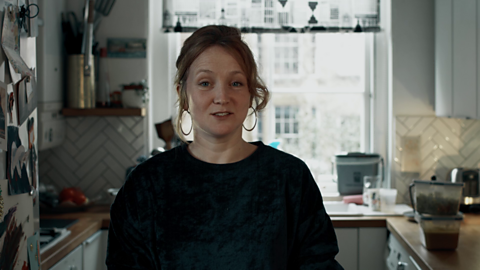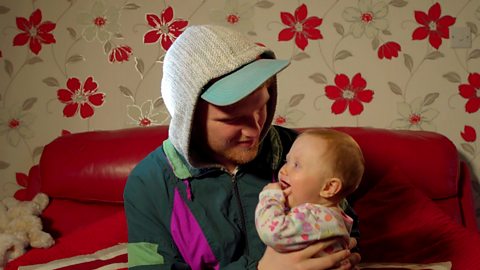From around 16 to 24 weeks of your pregnancy, you should feel your baby moving, making their presence known.
And it might feel quite strange at first ã you might even miss it: some mums-to-be describe the feelings as fizzes or flutters.
Being mindful of their movements can help you build an early bond with your baby.

When your baby moves you'll notice their growing strength
Whether it feels like bubbles, your stomach growling or popcorn popping, the first time your baby moves is a bit of a landmark, like your pregnancy is becoming real. As your baby grows and gains strength, their movements will change ã the flutters will give way to kicks, punches and rolls, which will continue to right up until labour and during it too.
You might find that their movements hurt, but try not to worry: this can be a positive indicator that baby is growing well and becoming stronger and more active. Towards the end of your pregnancy thereãs less space to move around, and if your baby remains in a similar position it can become painful or uncomfortable due to pressure on the same point.
Look for patterns when your baby moves
Unborn babies spend most of their time sleeping ã usually in short 20 to 40-minute spurts ã but afternoons and evenings can be very active, acrobatic times. Notice whether they react to what youãre doing. For example, they may respond to sounds, to you eating or drinking and movements like strong laughter or dancing.
Itãll feel a little strange at first, but some mums-to-be like talking and singing to their bump once their baby starts moving. Alternatively, you could play them music you like or see if they respond to pressure and communicate this way. When you feel a kick, you or your partner could gently press against it and see if you are rewarded with another kick.
Monitor your baby's movements
Wondering if your baby can kick too much? Thereãs no set number of movements you should feel each day ã every baby is different. Whether it feels like youãre carrying a baby-sized gymnast or Premier League footballer in your bump, get to know your babyãs habits and movements, as this can help you keep an eye on their health. If you notice your baby isnãt as active as they have been, speak to your midwife or maternity unit straight away.
For more information on your babyãs movements and to download Kick App, visit the .
Article produced with help from Pamela Mills, an NHS midwife based in Greater Manchester.






